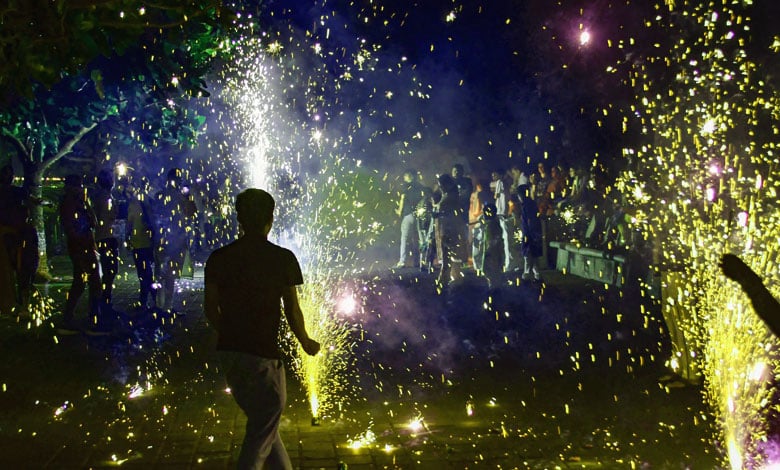Hyderabad Experiences Spike in Air Pollution During Diwali Celebrations
Is facing a significant surge in air pollution levels during the ongoing Diwali celebrations, with the Air Quality Index (AQI) skyrocketing to 171—well above the acceptable limit of 60.

Hyderabad: Is facing a significant surge in air pollution levels during the ongoing Diwali celebrations, with the Air Quality Index (AQI) skyrocketing to 171—well above the acceptable limit of 60. This alarming decline in air quality has been attributed primarily to the widespread use of firecrackers over the past 72 hours.
Data from the Telangana State Pollution Control Board indicates that air pollution has increased by 10% compared to the previous year. Certain areas, including Kapra, Bollarum, Patancheru, Somajiguda, and Sanathnagar, are particularly affected. The situation has worsened in some neighborhoods, with Somajiguda recording an AQI of 105 and New Malakpet hitting a staggering 335.
Hazardous particulate matter (PM2.5) has reached concerning levels, peaking at 475 at the U.S. Consulate observatory and displaying similarly high readings in other parts of the city. The Telangana State Pollution Control Board has warned that poor air quality is likely to persist, posing ongoing health risks, especially for vulnerable populations.
Health Impacts of Air Pollution
Air pollution has serious implications for human health, affecting nearly every organ in the body. The primary mode of exposure is through the respiratory system, where inhaled pollutants can cause inflammation and oxidative stress. These effects can exacerbate existing health conditions and contribute to a variety of illnesses, including respiratory diseases such as asthma and chronic obstructive pulmonary disease (COPD).
Short-term exposure to elevated pollution levels can lead to acute symptoms like coughing, wheezing, and chest tightness, while long-term exposure is associated with more severe health issues, including lung cancer and cardiovascular diseases, such as heart attacks and strokes.
Children and other vulnerable groups are at heightened risk. Research indicates that air pollution can impair lung development in children, leading to lasting health challenges into adulthood. Additionally, pregnant women exposed to high pollution levels may face risks such as low birth weight and premature births. The World Health Organization has classified air pollution as a major risk factor for various diseases, including diabetes and cognitive impairments like Alzheimer’s disease.
The economic burden of air pollution is also significant, leading to increased healthcare costs due to hospitalizations for respiratory and other pollution-related illnesses. In areas with elevated pollution levels, the rate of premature deaths linked to air quality issues is alarmingly high.
As Hyderabad navigates these challenging air quality conditions during Diwali, health officials urge residents to take precautions to protect themselves and reduce exposure to harmful pollutants.
